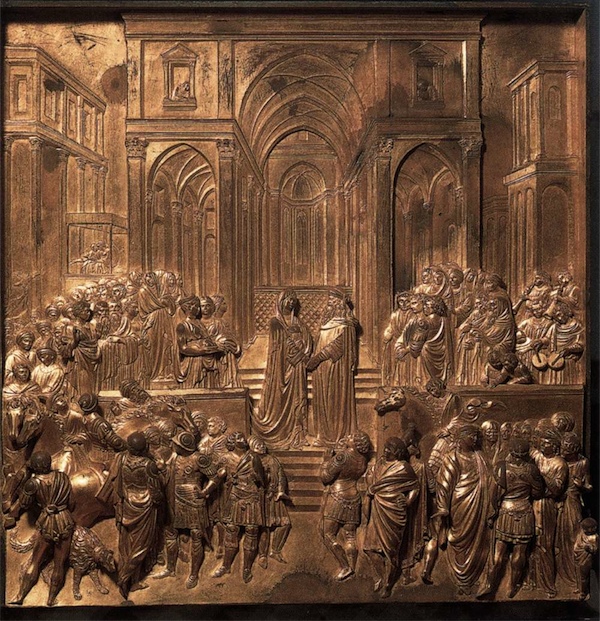
? ????????? ????? ????????, ??????? ????????????; ?????????? ?????, ??????????? ????????.
? ???-??????????? ???????? ????????????, ???????????????? ??????????; ?????? ?????? ???????-???, ???????? ??????? ???-???????????–???????? ???????, ??? ??????????.
I am black and beautiful, O daughters of Jerusalem,
like the tents of Kedar, like the curtains of Solomon.
Do not think that I am dark,
for the sun has changed my color.
My mother’s sons fought against me;
they made me keeper of the vineyards.
—Song of Solomon 1:5-6 (10th cen. BCE) (??? ??????)
Listen to a reading of the Hebrew text.
A Louisiana justice of the peace said he refused to issue a marriage license to an interracial couple out of concern for any children the couple might have. Keith Bardwell, justice of the peace in Tangipahoa Parish, says it is his experience that most interracial marriages do not last long.
“I’m not a racist. I just don’t believe in mixing the races that way,” Bardwell told the Associated Press on Thursday. “I have piles and piles of black friends. They come to my home, I marry them, they use my bathroom. I treat them just like everyone else.” Bardwell said he asks everyone who calls about marriage if they are a mixed race couple. If they are, he does not marry them, he said.
Solomon clearly had different ideas. In his canticles, black is beautiful, and it clearly is competition for the local maidens. And exotic and sexy as this passage may be, it was turned into some of the most magnificent and inspirational polyphonic music of the late Renaissance. Listen to Giovanni Pierluigi da Palestrina’s Missa Nigra sum (I am black) for five voices (ca. 1550):



